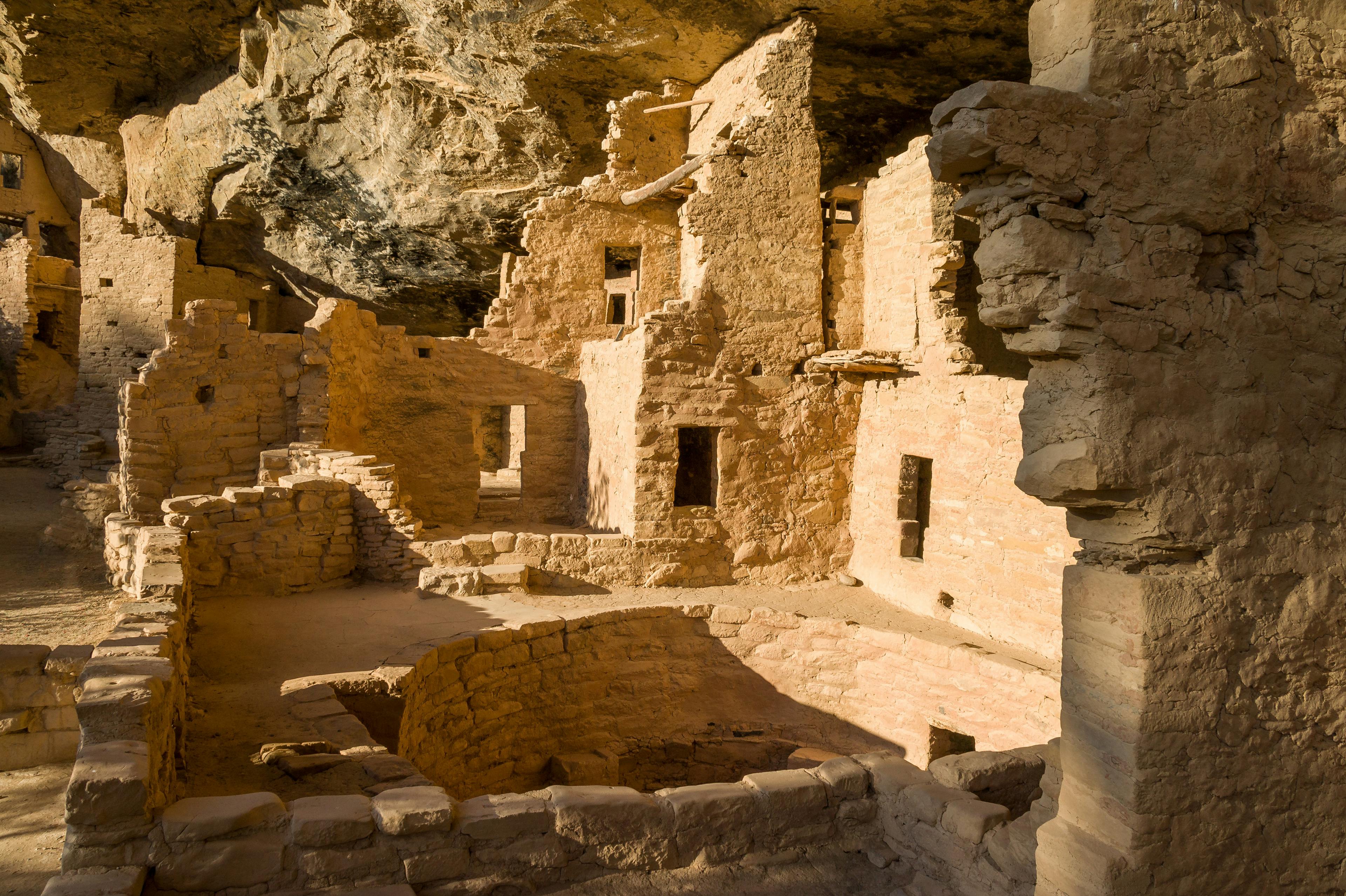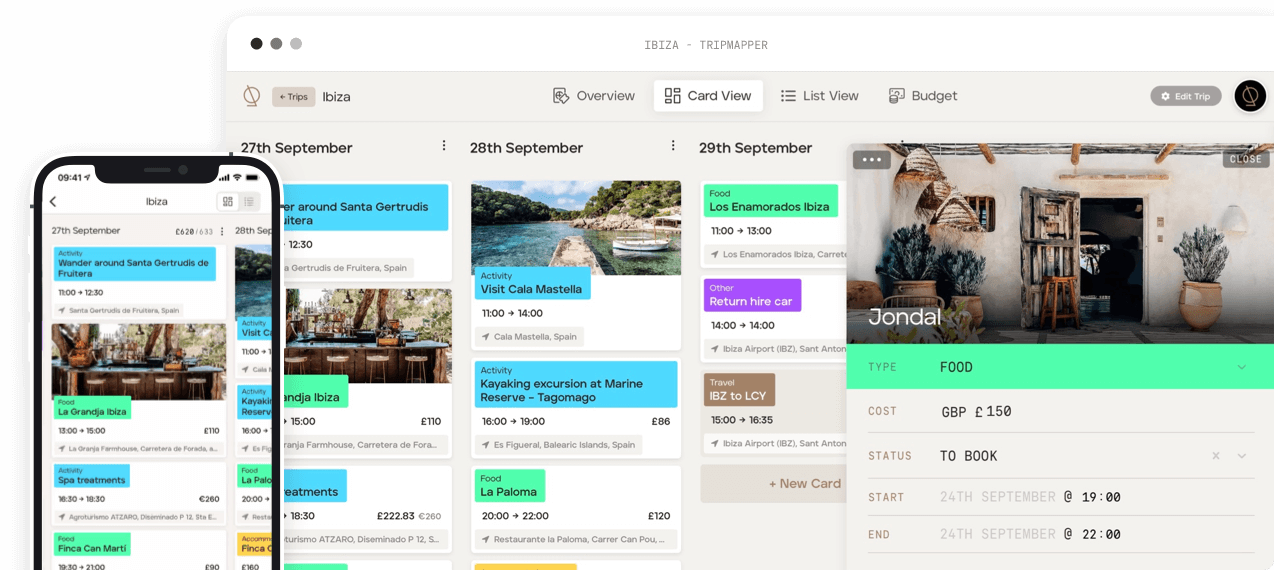Located in southwestern Colorado, Mesa Verde National Park offers an unparalleled opportunity to see and experience a unique cultural and physical landscape. We were so pleased that we included a visit in our U.S. road trip itinerary. We were astounded by the ancient Pueblo people’s ingenuity, Mesa Verde's wildlife and the beauty of the wilderness.
We hope our one day guide inspires you to add Mesa Verde to TripMapper, your travel itinerary app, when you visit Colorado.
STOP 1
Mesa Verde Visitor and Research Center
Your first stop should be the Mesa Verde Visitor and Research Center. The visitor center will help you plan your visit and offer a glimpse into the ancestral Puebloan culture.
Before you leave the visitor centre (and while you have wi-fi) we recommend you download the ‘Mesa Top Loop Drive Audio Tour: A Pueblo Perspective on Mesa Verde,’ audio tour.
Once on the road keep an eye out for Mesa Verde's wildlife!
STOP 2
The Chapin Mesa Archeological Museum
The museum is located on Chapin Mesa, 20 miles from the park entrance. Here you can see dioramas illustrating ancestral Pueblo life, wonder at historic artifacts and watch a short film on Mesa Verde’s history. You will leave with an excellent overview of the ancestral Pueblo people and how they flourished in Mesa Verde for 700 years.
What did we learn?
Ancient Pueblo people and Mesa Verde
1500 years ago, long before Europeans explored North America, ancestral Pueblo people began to set down permanent roots on Mesa Verde. The mesas are covered like a blanket with a dense forest of pinyon pines and junipers. Despite the mesa's high elevation and steep canyons Mesa Verde made a good home for the ancestral Pueblo people because it offered plentiful resources, fertile soil, and a good water supply. They built villages on the mesa tops and in the cliffs, grew crops, raised their children and produced beautiful art and pottery. For the centuries that the ancestral Pueblo people called Mesa Verde home, it would have been bustling and full of life.
Villages from A.D. 550 to A.D. 1300
The first people settled in Mesa Verde about A.D. 550. They are known as “basketmakers” for their skill at the craft. Formerly nomadic, they were beginning to lead a more settled way of life. They lived in pithouses clustered into small villages usually built on mesa tops but sometimes in cliff recesses.
About A.D. 750 they began building houses above ground, with upright walls made of poles and mud. From here on, these people are known as Pueblo people meaning “village dwellers”.
By A.D. 1000 the people of Mesa Verde had advanced to skillful stone masonry. Walls of thick, double coursed stone often rose two or three stories high and were joined together into units of 50 rooms or more.
Sometime during the late 1190s, after primarily living on the mesa top for 600 years, many ancestral Pueblo people began living in pueblos they built beneath the overhanging cliffs. The structures ranged in size from one-room storage units to villages of more than 150 rooms. While still farming the mesa tops, they continued to reside in the alcoves for nearly a century.
By about A.D. 1300, Mesa Verde was deserted. The population began migrating south into present-day New Mexico and Arizona. Today, there are 26 tribes that have a special relationship with Mesa Verde National Park.
STOP 3
Spruce Tree House
A short walk from the Chapin Mesa Archeological Museum is Spruce Tree House, a cliff dwelling constructed between 1211 and 1278. It was first discovered in 1888, when two local ranchers chanced upon it while searching for stray cattle.
It is Mesa Verde’s third largest cliff dwelling containing 130 rooms, eight kivas and may have housed 60 to 80 people. The cliff dwelling is so well preserved that it is easy to visualise the ancestral Pueblo people within the village. An incredible sight.
STOP 4
Mesa Top Loop
Time to get back on the road and drive the Mesa Top Loop. Press play on the informative audio tour and let it be your guide as you drive the 6 mile (10km) loop to view many fascinating archeological sites.
Highlights include Square Tower House Overlook and views of Cliff Palace, the largest cliff dwelling in North America. This architectural masterpiece contained 150 rooms, 23 kivas and had a population of approximately 100 people.
STOP 5
Petroglyph Point Trail
There are a plethora of hiking trails to discover at Mesa Verde. We followed the adventurous Petroglyph Point Trail (2.4 miles/ 3.9km) which provides breathtaking views of Spruce and Navajo Canyons.
STOP 6
Park Point Overlook
On the drive back to the park's entrance ensure you stop off at Park Point Overlook, the highest point in Mesa Verde National Park. Have your camera ready!
Use TripMapper, the best travel itinerary app out there 😉, to plan your trip and to stay in control of your travel budget. It is the best iOS trip planner, the best Android trip planner and has the best desktop experience 💻! Sign up for TripMapper now fellow travellers! 🙌
Information sources:
- TripMapper visit to Mesa Verde National Park
- National Park Service U.S. Department of the Interior – Mesa Verde National Park
- Mesa Verde Association
Editor's note: There are still some restrictions on travel due to COVID-19. Please check the latest guidance before booking and departing and always follow local health guidance. Also check National Park alerts before visiting.

